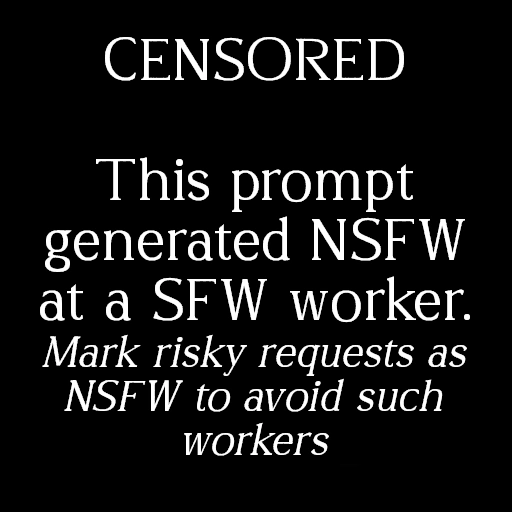Work in Europe 2025: The Ultimate Guide to Seasonal Work Visas for Filipinos
The “American Dream” is old news. The “European Dream” is the new frontier.
For decades, the Middle East was the default option for Filipinos. But in 2025, the game has changed. With the Euro (EUR) trading significantly higher than other currencies, earning in Europe can triple your savings compared to traditional OFW destinations.
But here is the problem: Getting a full work permit in Europe is notoriously difficult. The paperwork is endless, and the rejection rate is high.
The Solution? The Seasonal Work Visa. Many European countries are facing severe labor shortages in agriculture, tourism, and hospitality. To fix this, they have opened “short-term” visa pathways that are easier to get, faster to process, and legal.
This guide is your passport to understanding which countries are hiring, how to apply, and how to avoid the dreaded “TNT” (Tago-Ng-Tago) trap.
What is a Seasonal Work Visa?
Unlike a standard “Work Permit” which is often tied to a 2-year contract, a Seasonal Work Visa is designed for peak seasons (Summer or Winter).
- Duration: Typically 3 to 9 months.
- Industries: Farming (Harvesting), Hotels (Housekeeping/Kitchen), and Tourism.
- The Catch: You usually cannot bring your family, and you must return home after the visa expires.
- The Benefit: It is a legitimate “foot in the door.” Many OFWs use this experience to build a track record, making it easier to apply for long-term visas later.
Top 3 Countries Hiring Seasonal Filipino Workers in 2025
1. Norway (The High Payer)
Norway is not part of the EU, but it is part of the Schengen area. It offers some of the highest salaries in the world.
- Target Jobs: Agriculture (Strawberry/Vegetable Picking), Fish Processing, and Forestry.
- Salary Potential: Approx. €17 to €20 per hour (roughly ₱1,000+ per hour).
- Visa Validity: Up to 6 months.
- Key Requirement: You must have a confirmed job offer from a Norwegian employer before you apply. You cannot go there as a tourist and apply.
- Process: The employer usually initiates the application with the UDI (Norwegian Directorate of Immigration).
2. Germany (The Economic Giant)
Germany has recently liberalized its immigration laws. While the Chancenkarte (Opportunity Card) is famous, the Seasonal Visa is easier for non-graduates.
- Target Jobs: Hotel staff, Restaurant crew, and Agricultural harvesting.
- Salary Potential: Minimum wage is around €12.41 per hour (rising in 2025).
- Visa Validity: Up to 90 days (Short-term) or longer depending on the sector.
- Agency vs. Direct: Germany has a specific agreement with the Philippines (Triple Win Program for nurses), but for seasonal work, you often need a POEA-accredited agency that specializes in Europe.
3. Croatia (The New Hotspot)
Croatia recently joined the Schengen Zone and has a massive shortage of tourism workers.
- Target Jobs: Waiters, Bartenders, Chefs, and Housekeeping for beach resorts.
- Salary Potential: Lower than Norway/Germany (approx. €800 – €1,200 per month net), but the cost of living is much lower, and accommodation is often free.
- Why it’s popular: The approval rate for Filipino workers in Croatia has been higher compared to Western Europe.
The “Golden Rule”: The DMW Process
WARNING: You cannot just “fly and apply.” That is illegal recruitment and human trafficking.
To work legally in Europe as an OFW, you must still pass through the Department of Migrant Workers (DMW), formerly POEA.
The 3 Legal Pathways:
- Agency Hired: You apply via a licensed recruitment agency in the Philippines that has approved “Job Orders” for Europe.
- Action: Check the DMW website for approved job orders.
- Government-to-Government (G2G): Usually for factory workers (South Korea) or Nurses (Germany).
- Direct Hire (Name Hire): If you find an employer on LinkedIn or Indeed who is willing to sponsor you.
- Constraint: You are subject to the Direct Hire Ban. You must apply for an exemption.
Requirements Checklist (Prepare These Now)
Even before you find a job, get these “red ribbon” (Apostilled) documents ready. Europe loves paperwork.
- Passport: Must be valid for at least 6 months beyond your planned stay.
- COE (Certificate of Employment): Detailed proof of your experience in the field (e.g., Hotel certification).
- TESDA NC-II Certificates: Highly valued for skills verification (e.g., Housekeeping NC-II, Commercial Cooking NC-II).
- Police Clearance (NBI): Must be Apostilled (DFA Red Ribbon).
- Medical Certificate: Fit to work.
How to Spot a “Europe Visa” Scam
The desire to go to Europe makes Filipinos vulnerable. Watch out for these red flags:
- “Tourist to Work” Scheme: An agent says, “Mag-tourist visa ka muna, tapos convert natin doon.”
- Reality: This is illegal in almost all Schengen countries. You will be deported and banned.
- “Payment for Interview”: Legitimate employers never ask you to pay just to be interviewed.
- “Processing Fee” via GCash: Always pay through official channels with receipts.
- No DMW Accreditation: If the agency is not on the DMW list, run away.
The “Schengen” Bonus
One of the biggest perks of a Seasonal Work Visa in a Schengen country (like Germany, Norway, or Croatia) is freedom of movement.
On your days off, you can legally travel to other Schengen countries (like Paris, France or Rome, Italy) without needing a separate visa. It is the ultimate “work-cation” opportunity.
Final Verdict: Is it Worth it?
Yes.
While the contract is short (3-6 months), the earnings are concentrated. A 6-month stint in Norway can earn you the equivalent of 2 years of salary in the Middle East. Plus, having a “Schengen Visa” sticker in your passport massively boosts your “travel history,” making future visa applications for Canada, USA, or Australia much easier.


